
Emperor Napoleon
Grand Armee
80,640 infantry
11,840 cavalry
108 artillery
BATTLE OF BERLIN
JUNE 30th, 1811

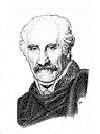
Marshal Blucher
Wing One
72,000 infantry
13,120 cavalry
72 guns
|
80,640 infantry |
BATTLE OF BERLIN JUNE 30th, 1811
|
72,000 infantry |
Immediately following the battles of Dennewitz and Teupitz,
Napoleon sent orders instructing
his corps to move south to gather some replacements and deal with the Austrians.
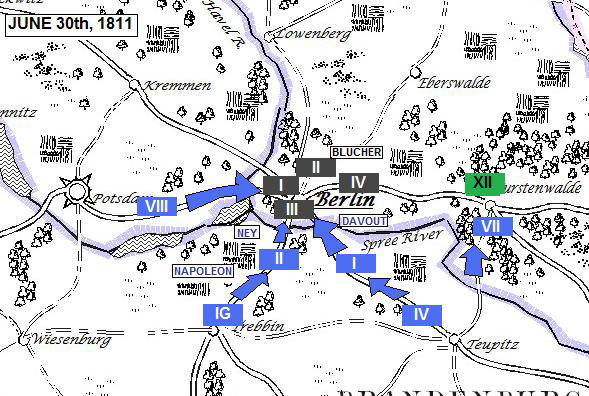 He was persuaded though by Marshal Davout that there was an opportunity to
strike the isolated wing of Blucher at Berlin and destroy the last intact
coalition army north of the Elbe. Accordingly, orders were issued to attack
Berlin on June 29th, to fight a battle on June the 30th. Although there was a
large force of French massed south of the Spree, the Spree river line made it
impossible to push everything forward simultaneously. French VII Corps, with
22,000 men, tried to force march to Berlin via Furstenwalde but encountered a
small Russian XII Corps there. The French would win the battle of Furstenwalde
on the 30th but French VII Corps would be missed at the battle of Berlin.
He was persuaded though by Marshal Davout that there was an opportunity to
strike the isolated wing of Blucher at Berlin and destroy the last intact
coalition army north of the Elbe. Accordingly, orders were issued to attack
Berlin on June 29th, to fight a battle on June the 30th. Although there was a
large force of French massed south of the Spree, the Spree river line made it
impossible to push everything forward simultaneously. French VII Corps, with
22,000 men, tried to force march to Berlin via Furstenwalde but encountered a
small Russian XII Corps there. The French would win the battle of Furstenwalde
on the 30th but French VII Corps would be missed at the battle of Berlin.
Marshal Blucher had been in Berlin for four days and was anticipating the eventual French attack. He selected a defensive line behind the Spree river. Perhaps it was the politics that forced him to deploy in an uncharacteristically defensive posture, not wanted to risk losing the capital again.
The three roads that the French were obliged to march up meant
that I Corps (and the following IV Corps) would be arriving north of the Spree
while the remainder would be south. Had French VII Corps arrived, it would have
been deploying to the immediate right of Vandamme's I Corps.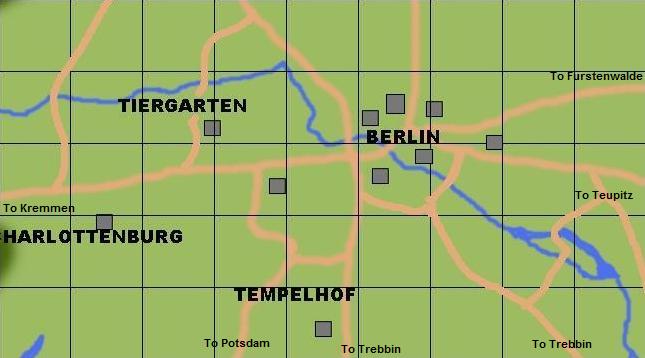 Marshal Blucher would deploy the grenadiers of I Corps behind Berlin as a
reserve. III Corps would be on the right, wary of a French double envelopment.
York's Corps consisted of mostly Landwher reservists so was set up in the town,
defending the bridges from a frontal assault. Bulow's II Korps was assigned the
task of containing whatever the French were pushing up from Teupitz.
Marshal Blucher would deploy the grenadiers of I Corps behind Berlin as a
reserve. III Corps would be on the right, wary of a French double envelopment.
York's Corps consisted of mostly Landwher reservists so was set up in the town,
defending the bridges from a frontal assault. Bulow's II Korps was assigned the
task of containing whatever the French were pushing up from Teupitz.
Napoleon's plan was not aggressive either. The weakness of the isolated I Corps north of the river was the primary concern. II Corps was therefore given the task of getting his corps across the river to join I Corps immediately and, at all costs, to protect the one river crossing there. VIII Corps would be give the task of demonstrating and probing along the length of the river, hoping to pin the bulk of Prussian III and IV Korps. Marshal Davout commanded the French right wing and Marshal Ney would act as an independent wing commander, with authority to direct troops as required on the right.
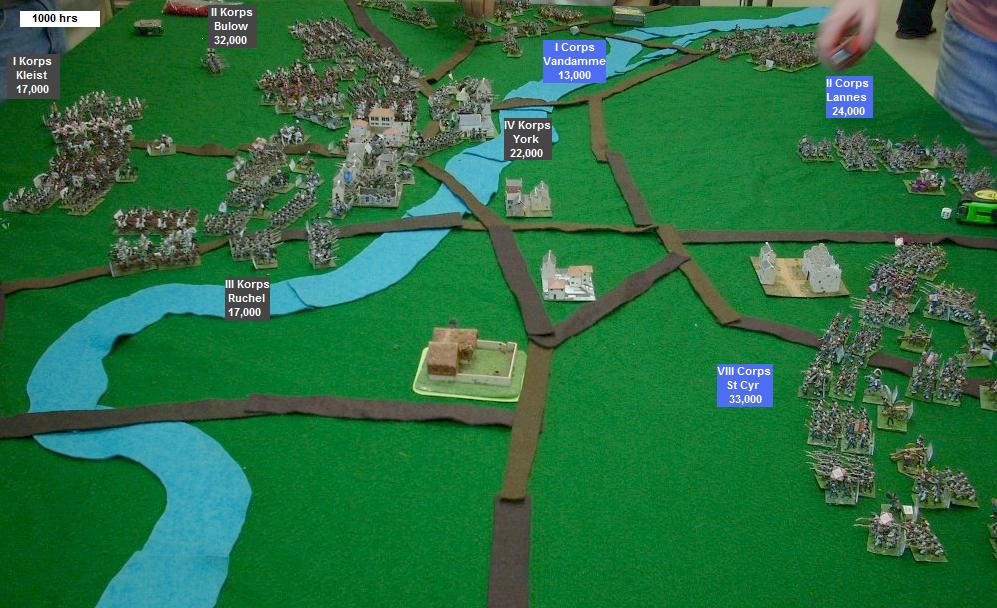
French II Corps would need to spend the first hours of the battle crossing to the other side of the river. Some of the divisions are very fatigued, having not had sufficient opportunity to rest since they were last engaged in battle.
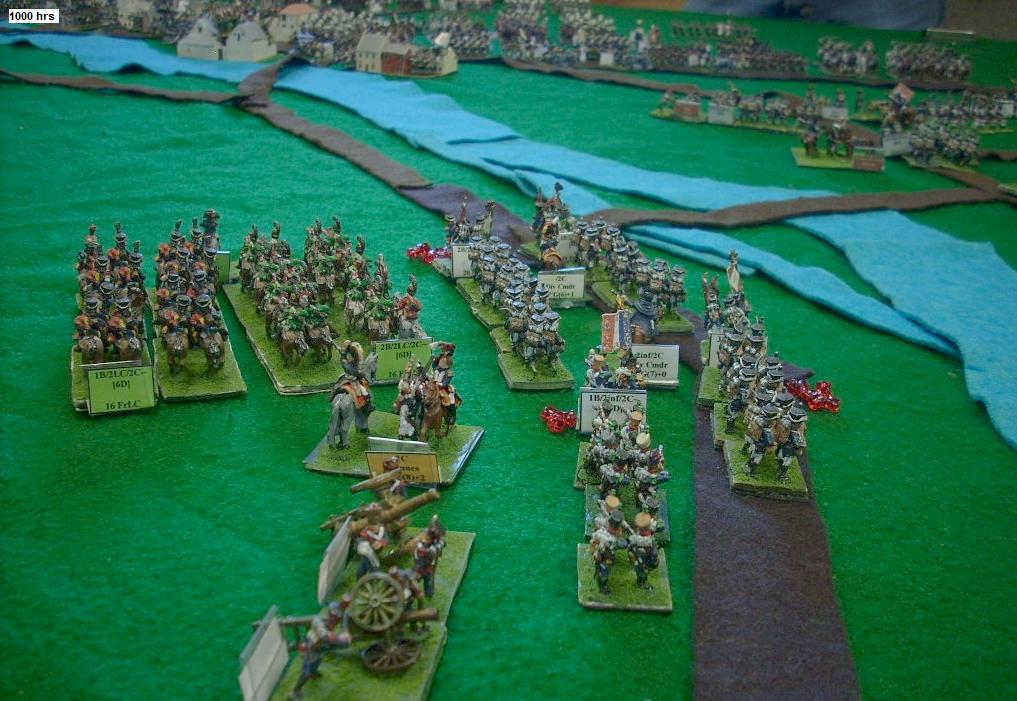
Davout deploys I Corps on a wide front. Marshal Ney had earlier quipped that he should try to look big until II Corps got there. Initially, the forces arrayed against the French in this sector appeared manageable. Initially, the French artillery would target Prussian cavalry while the Prussian guns would conduct counter-battery fire.
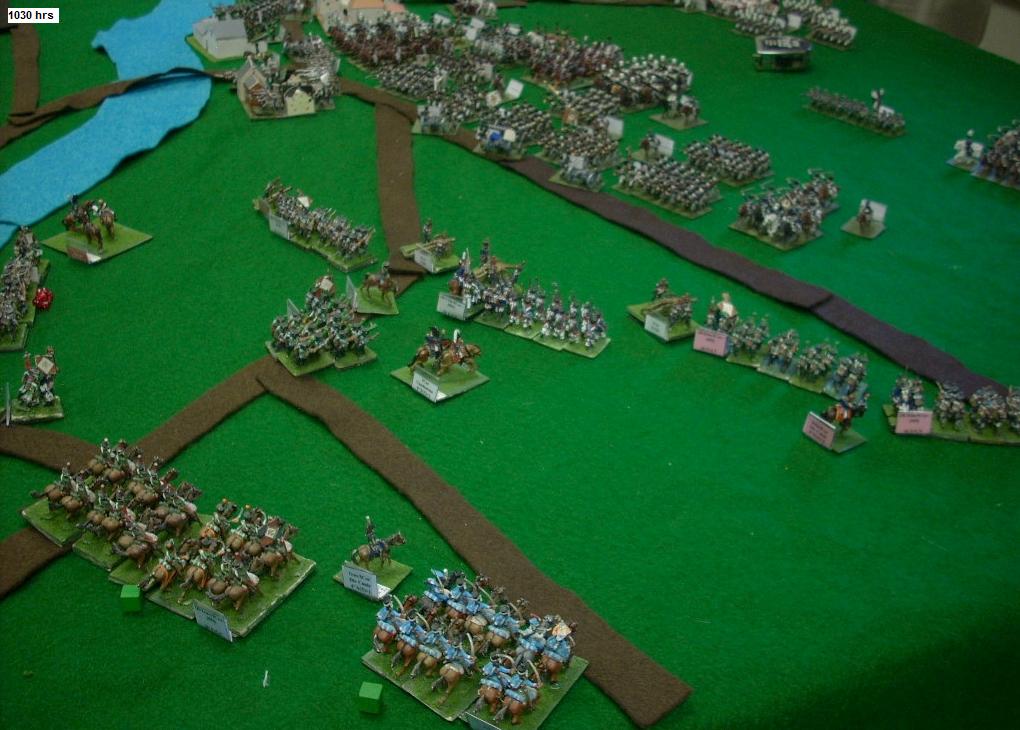
French VIII Corps is the strongest Corps in the French army, being fresh still from not having been in any battles. II Corps had been to Berlin once before, when it fought and pinned Blucher on the 27th and was obliged to retire. French I Corps had arrived only late to the battle of Dennewitz so was as yet, mostly fresh.
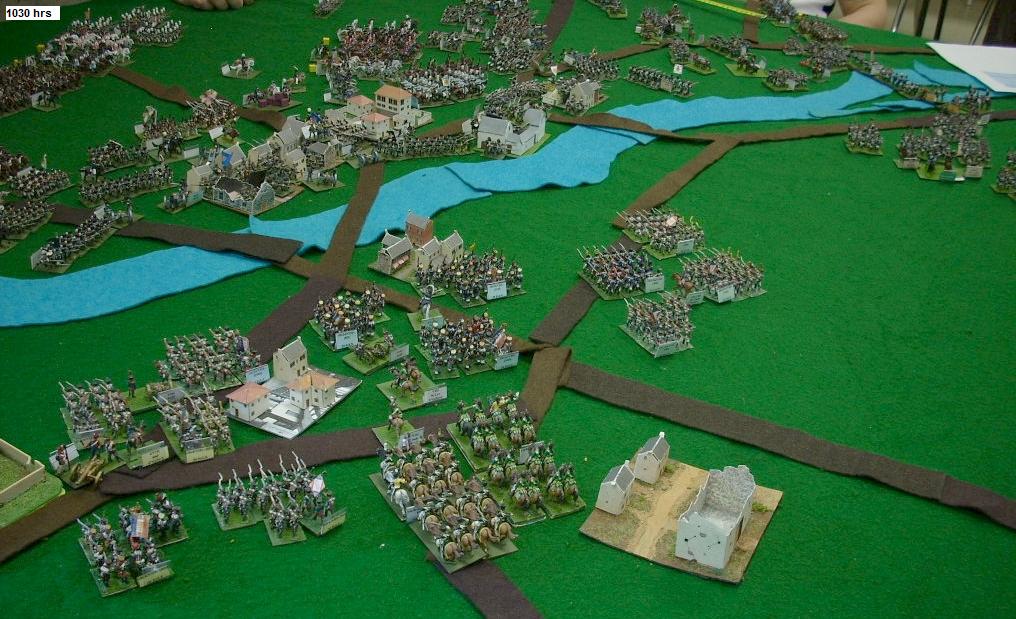
Marshal Blucher commits his reserve early, moving it decisively against the isolated wing of Davout. Meanwhile, Marshal Ney keeps checking his watch and swearing at the long bridge that he is required to cross. The bulk of his Corps sits idle, which does not sit well with his red-headed disposition.
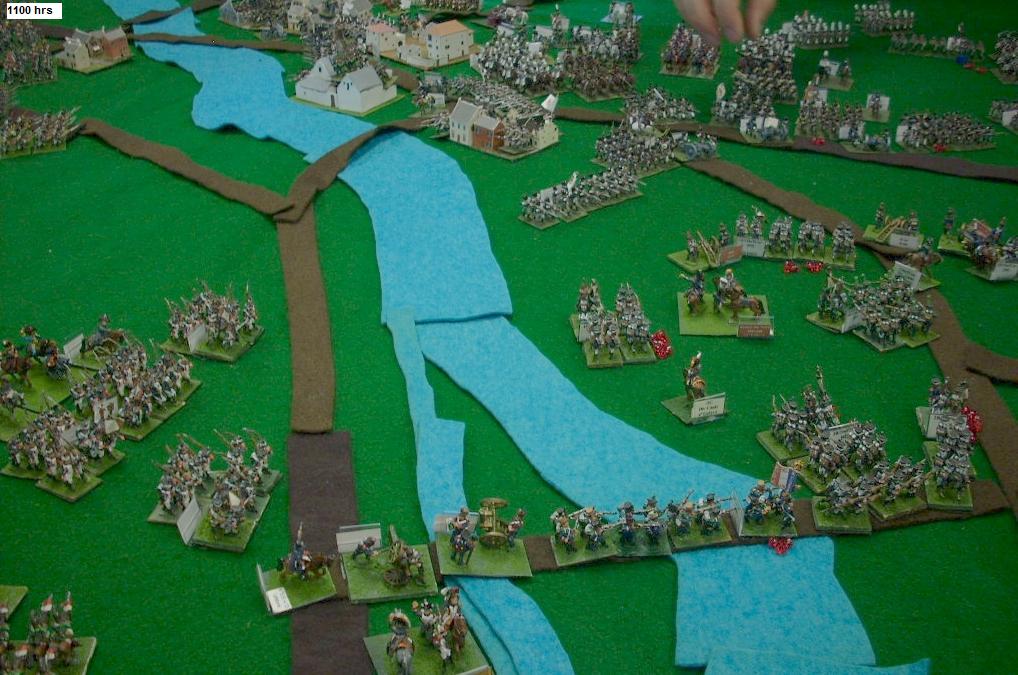
Marshal Blucher commences to personally lead attacks by Grenadiers and Landwher light cavalry. The Prussians use combined arms attacks to great initial success on that flank. On the French left, St Cyr tries a tentative attack to test the mettle of the Prussian defenders and his wide disposition to the left begins to pull Prussians toward that crossing.
Marshal Ney, meanwhile, has become impatient with the lone bridge and tries to find another. One division is hurled across the bridge into central Berlin where Landwher infantry are deployed to resist.
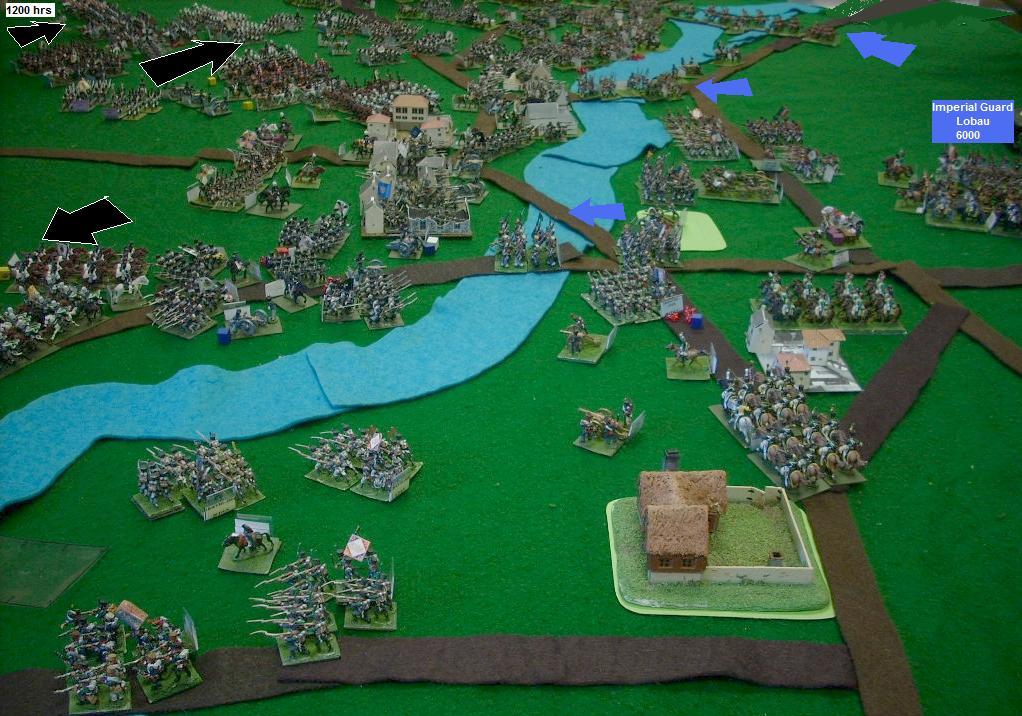
Marshal Ney though is personally on the north bank, leading charge after charge of French infantry columns against the Prussians. He comes close to linking up with his other crossing point. His artillery pounds the Berlin suburbs where Prussian reservists defend. The Prussians have begun to mass a significant force of cavalry behind their left flank, numbering some nine brigades.
Although initially the Prussians had been winning the artillery duel here, the French were able to recover and already the Prussian artillery on this flank is quieted.
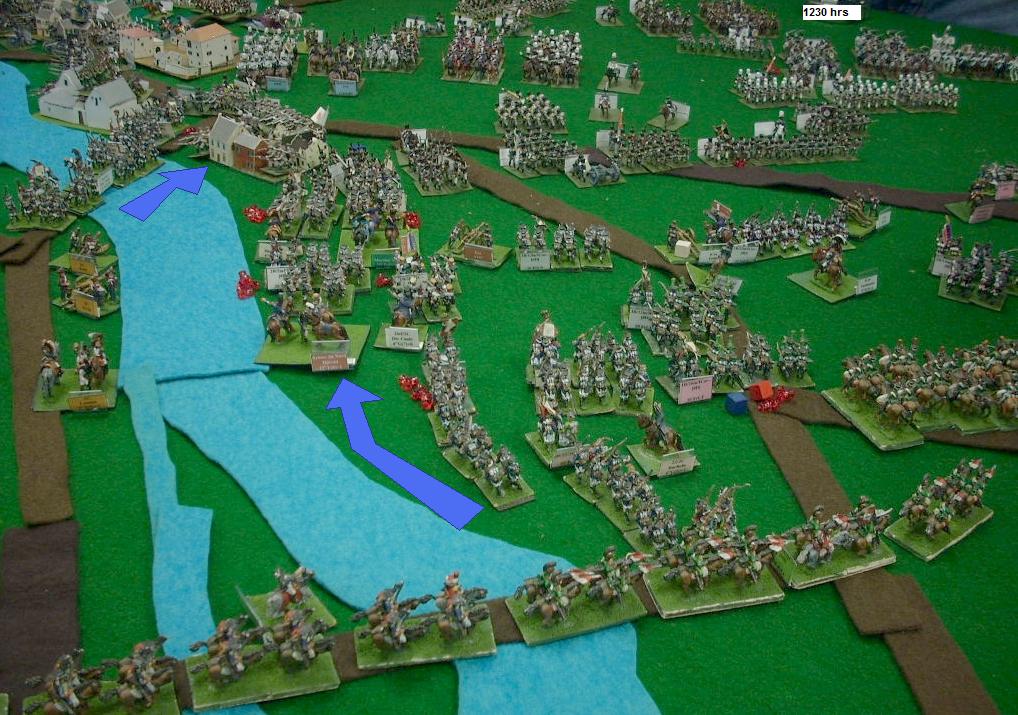
The Prussian Grenadiers, supported by cavalry under Marshal Blucher, throw back the first units that Davout puts before them. Although French II Corps is still attacking near the riverbank, I Corps is already in full defense mode.
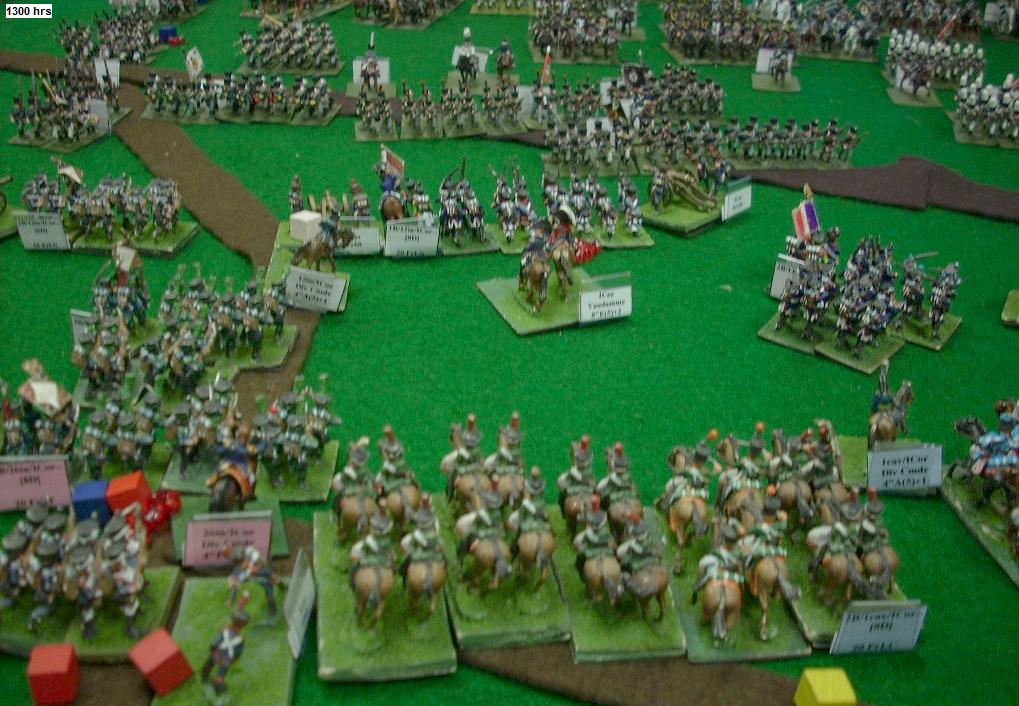
The Grenadier advance does not flag, even when French IV Corps shows up as reinforcements and immediately throws itself into the battle. It is hurled back without giving the Prussians any significant pause. Again and again, the French would find themselves unable to get their cavalry into the fight in a way that will limit the combined arms attacks of the Prussians.
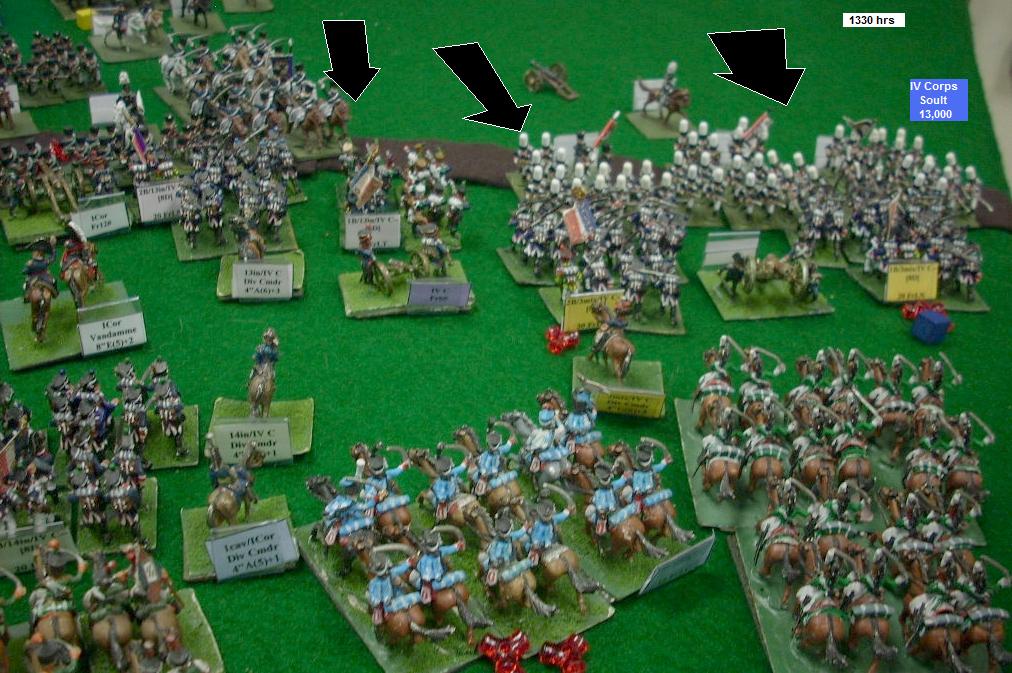
The vast majority of the Prussian army is now pressing against Davout's wing. They have depth and are able to advance with controlled, orderly resolve. Ney's attempt to send a division across into Berlin was driven back by fire and bayonet by the Landwher and their supporting artillery.
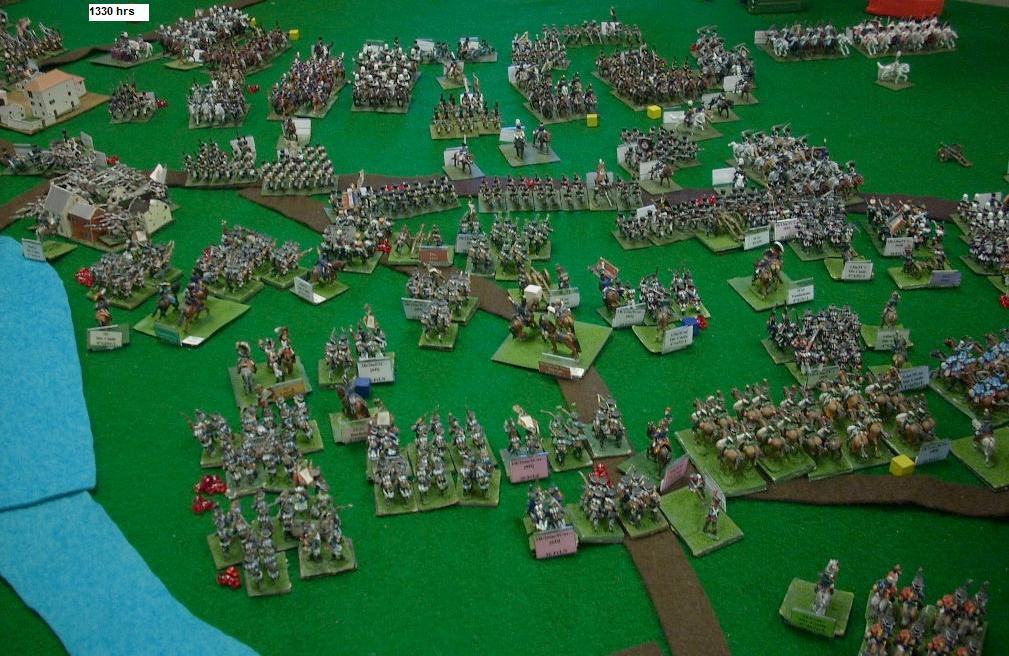
And most of the French army, including the Imperial Guard, is still south of the Spree river, able to do nothing but but engage in an artillery duel across the water. The French are winning that firefight but the effects are inconsequential to the outcome of the battle.
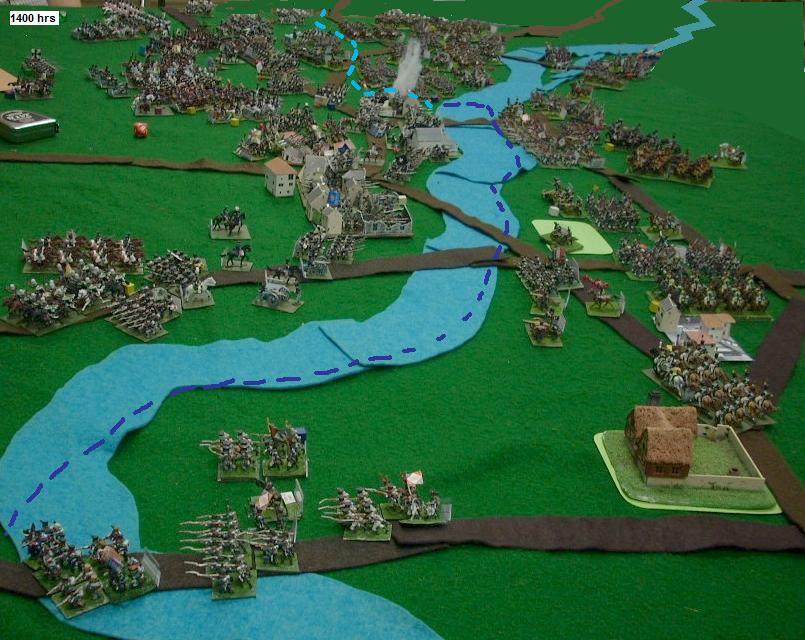
The French right is pushed back to the riverbank. The are rallying but there seems no way to reform a solid line that can oppose the Prussian attacks. The Imperial Guard deploys to protect the line of retreat.
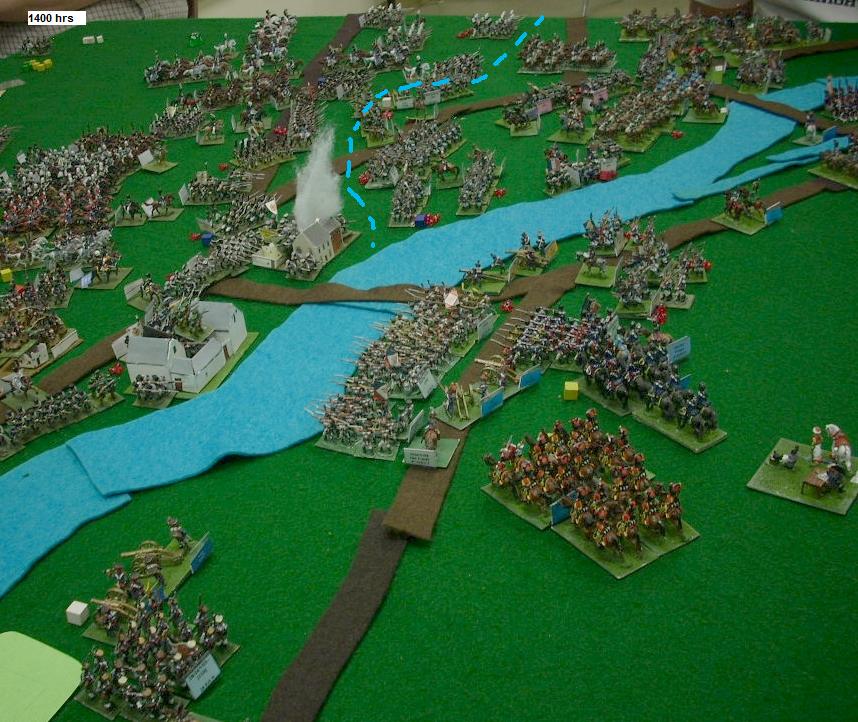
At 1400 hours, Napoleon ordered the right wing to retreat across the river to rejoin the army. The army would then withdraw south in the night. It was a victory for the Prussians and worth more because Berlin is saved and Napoleon has been defeated.
I Corps and II Corps for the French suffered heavily throughout the day. Most Prussian losses were to artillery and Bulow's II Korps. Prussian I Korps, for all of its fighting, emerged from the fight almost unscathed. Really, the battle had only been beginning before the French conceded defeat and withdrew.
| Campaign System Estimated Force | Battlefield Estimated Force | Campaign System Estimated Casualties | Battlefield Estimated Casualties | |
| Prussians | 106,000 | 85,000 | 5,000 | 4,000 |
| French | 108,000 | 92,000 | 18,000 | 15,300 |